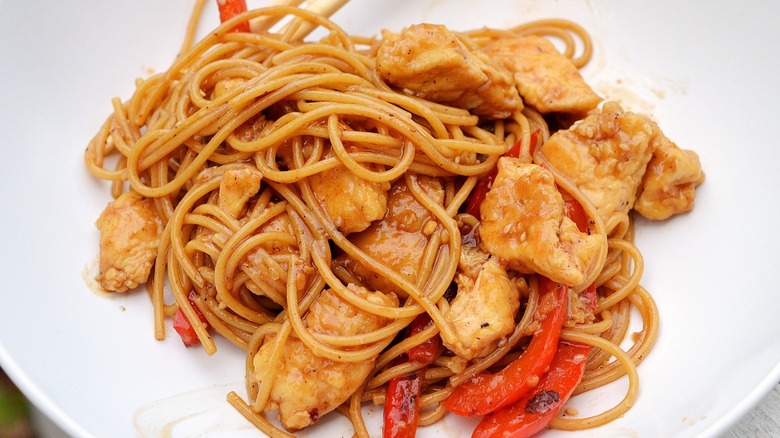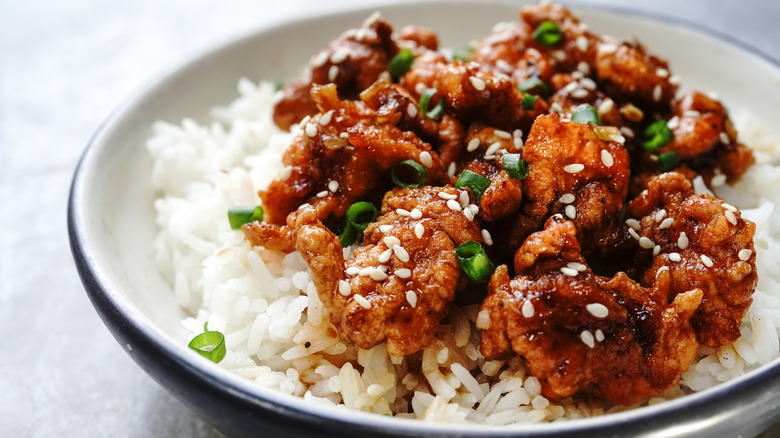If You Want Super Tender Chicken, Then Learn The Power Of Velveting
What comes to your mind when you see a chicken dish on a restaurant menu or while scrolling through recipes? Ideally, the tender, succulent, and full-of-tasty-flavor characteristics of any well cooked piece of chicken. But sometimes, you encounter a tough, dry, and leathery piece of disappointment. Chicken can end up tough and overly chewy due to a number of factors, such as if you've bought poor-quality chicken, overcooked it, or even left it uncovered for an extended period during the cooking process (leading to loss of moisture in the meat). To avoid this all-too-common problem, be sure to buy fresh and healthy chicken (which should look pink and plump, rather than fibrous due to "woody breast") and use a meat thermometer to avoid overcooking it.
But besides avoiding mistakes everyone makes when preparing chicken, there are also some extra tricks to ensure an amazingly tender bird every time. Some are Chinese restaurant secrets, such as poaching the chicken in hot water before adding it to a stir-fry, as the The Woks of Life explains. But a similar technique has been perfected over time to tenderize meat for dishes like kung pao and chow mein. It's called velveting, and all it requires are water, oil, and cornstarch.
Velveting means marinating meat in cornstarch before a quick fry
The traditional Chinese cooking technique you need to know for more tender chicken is called velveting, explains Food Network, and it's "the process of marinating meat in cornstarch and then passing it through hot oil" for a brief fry. This is a common first step in stir-fried dishes, but it can be used for just about anything you want to add pieces of chicken to. When you properly employ this cooking secret, you'll end up with juicy, tender chicken, even when you reheat it. This is because marinating in a cornstarch or cornflour slurry softens the meat's fibers, making the chicken velvet-like from the inside out. The cornstarch surface turns golden during the quick frying process, but then becomes silky when stir-fried with the rest of your recipe's ingredients.
You could also end up with tender chicken by using a meat tenderizer or mallet on your boneless chicken, but a marinade or brine like the velvet version ensures a juicier, more flavorful result. This is because marinating makes it easy for fluids and spices to evenly enter the meat. However, "velveting chicken does not add any flavor so it tastes just like normal chicken," per RecipeTin Eats, so only the texture changes.

